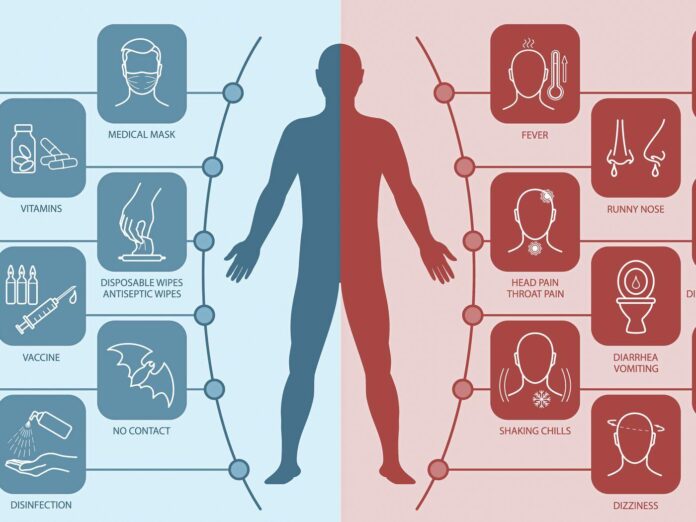| Translate This News In |
|---|
Coronavirus appears to infect the mouth, including the lips, gums, and salivary glands, according to researchers.
According to CNN, the researchers’ results, which were published in the journal Nature Medicine on Thursday, could explain why so many people infected with the coronavirus lose their sense of taste. They also say that the virus spreads primarily through the mouth.
Dr. Kevin Byrd of the American Dental Association Science and Research Institute, who worked on the report, said, “We think it can potentially spread SARS-CoV-2 further into our mouths, lungs, or even our guts when contaminated saliva is swallowed or tiny particles of it are inhaled.”
Researchers hadn’t looked at why saliva testing is such a safe way to diagnose coronavirus infection. The mouth, nose, sinuses, throat, and lungs are all related, and the virus can spread in mucus that drains or is coughed up from any of these areas.
Dr. Blake Warner of the National Institute of Dental and Craniofacial Science, which helped lead the report, said, “We believed at least some of the virus in saliva could be coming from contaminated tissues in the mouth itself.”
The researchers studied oral tissue and discovered that cells within the mouth bear the receptors — or cellular doorways — that coronavirus uses to infect them, including the ACE2 receptor, according to CNN. They studied salivary glands from people who died of Covid-19 and discovered the virus in about half of them.
“They found active RNA in cells shed from the mouth into saliva of people with moderate or asymptomatic Covid-19, indicating that the virus was replicating in the cells. They also managed to infect cells in a lab dish by exposing them to saliva from eight people with asymptomatic Covid-19, suggesting that saliva may be infectious “According to it,
The researchers took saliva samples from 35 NIH employees who had Covid-19 but were asymptomatic or mildly affected. “Patient self-reported ‘loss of taste and smell’ was positively correlated with the presence of SARS-CoV-2 RNA in saliva in symptomatic individuals,” they wrote.
Researchers discovered evidence that people who test negative on a nasal swab often test positive on a saliva test, according to CNN. “These findings indicate that the virus is cleared from the nasopharynx but can remain in saliva, implying sustained virus shedding from SARS-CoV-2-infected oral sites,” the researchers wrote.


















